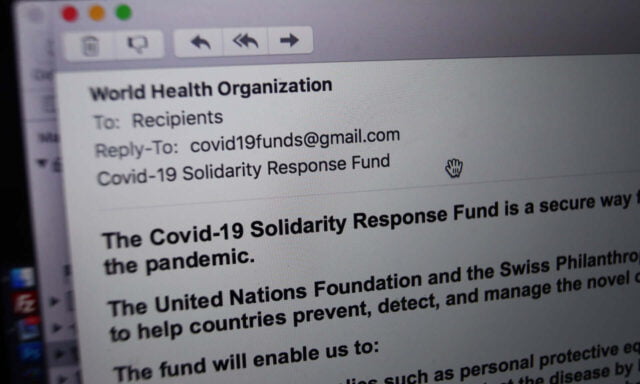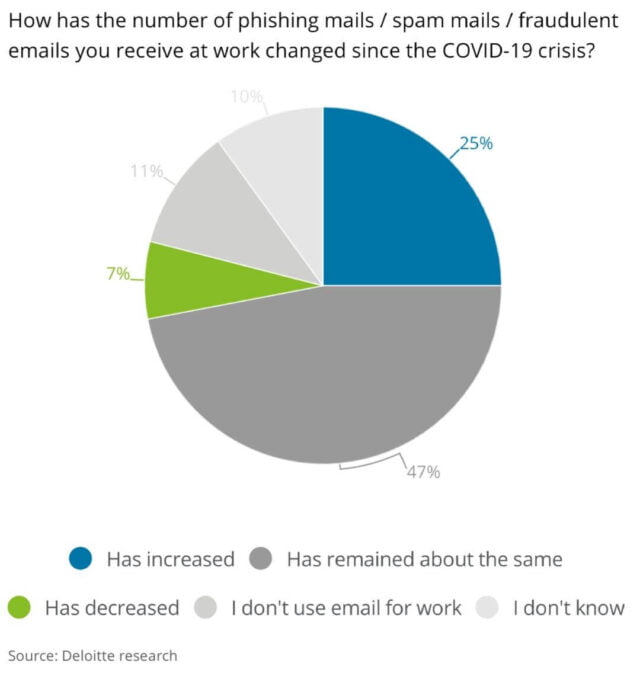Disclaimer: Originally published in July 2020. It is being republished since it still remains an interesting topic till today.
COVID-19 has disrupted all domains of our lives. All of us have been stuck in our homes for more than three months now. Owing to the uncertainty and helplessness that we are feeling, our mental health has gone for a toss.
One silver lining in the entire fiasco is that we have got the opportunity to work from the comfort and safety of our homes. We have got enough time on our hands now to enhance our bonding with our loved ones and nurture some new skills.
However, things are not as utopic as we expected them to be. No matter how protected we feel in the warmth of our homes, the evils of society are still eyeing us. Scary, right?

The concept of cybersecurity is still an alien idea to some of us. The unprecedented attention that virtual platforms have gained has increased our exposure to cyber-attacks.
Why Has Remote Working Increased The Chances Of Exposure to Cybercrimes?
Not all companies had the infrastructure in place to provide work from home opportunities to all of their employees. The companies rely on Virtual Private Networks (VPNs) to facilitate remote working.
There are high chances of security misconfiguration in VPNs, considering that the organizations were not ready for such a situation.
While working remotely, employees might use their personal computers for official purposes. This risks the exposure of a company’s sensitive information to outsiders.

Since workplaces are closed, and employees are encouraged to work remotely, the entire team might not be on the same page. While working from home, people have less IT support due to which, there might be a delay in the detection of potential attacks.
Read Also: Microsoft’s LinkedIn Sued For Spying On Apple Devices
Certain Segments Are More Vulnerable To Cyber Attacks
While giant firms invest a lot of money on modern, complex technologies to protect their organizations, small and medium-sized enterprises tend to look for convenient and low-cost security systems that might not provide full-proof protection against malicious attacks.
Reportedly, a lot of small-scale firms and individuals still rely upon antiquated antivirus and firewall technologies. However, artificial intelligence and cloud-based technologies can provide better protection.
Students, who are learning remotely, are another set of vulnerable people. They have a higher chance of falling prey to tailor-made phishing e-mails. Schools and universities, especially in India, do not have a proper infrastructure in place to protect their students and teachers against cybercrimes.
Around a few weeks back, the University of Delhi released admit cards for postgraduate students. Students complained that their admit cards containing personal details were publicly accessible due to a technical glitch on the university’s website. Reportedly, the officials admitted to the fault and the issue was subsequently fixed.

Such instances highlight the deficiencies in our infrastructure. It is high time that we monitor our activities on the internet. Educating ourselves regarding cybersecurity is the need of the hour.
Organizations and educational institutes should ensure that the safety of their employees/students is not compromised while they work/learn from home. Individuals should also take cybercrimes seriously and educate themselves regarding the same.
Image Sources: Google Images, Twitter
Sources: The Hindu, Forbes, The Guardian
Find The Blogger: @RitikaaNijhawan
This post is tagged under: Cybersecurity, Cyber crimes, Phishing E-mails, Spam E-mails, Fraud, Malware, Data Leak, Privacy Breach, COVID-19, Work From Home, Cyberattacks, E-learning, Remote Learning, Remote Working, beware, careful of, how to protect, how to avoid, scams during pandemic, scams during lockdown, safety, protection, online safety
Other Recommendations:
How To Save Your Card Details And Passwords From Getting Stolen Online?

































